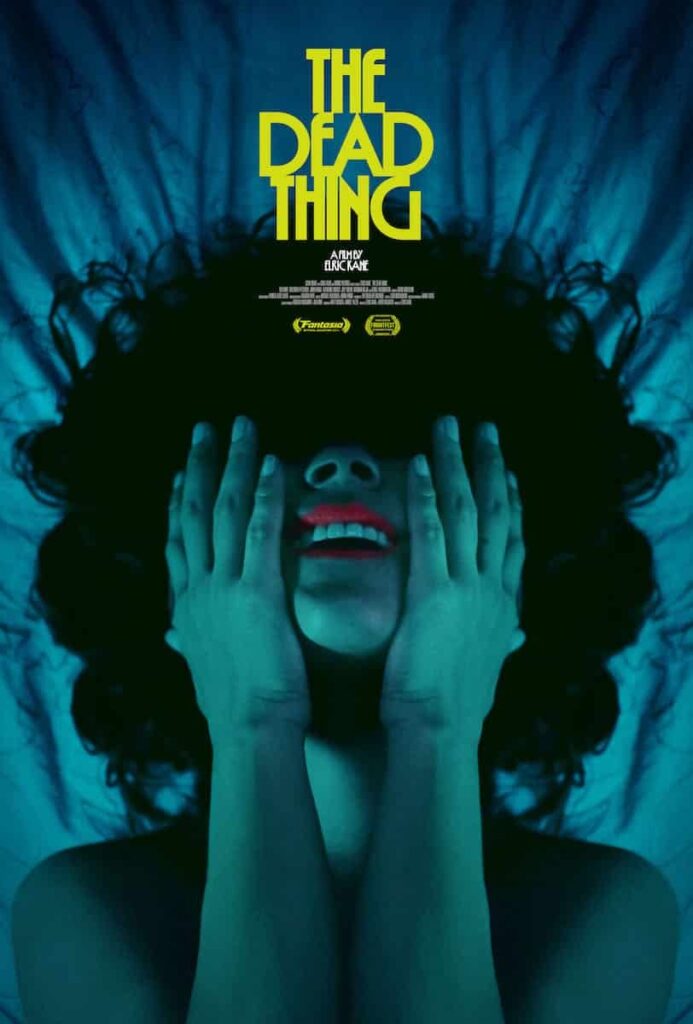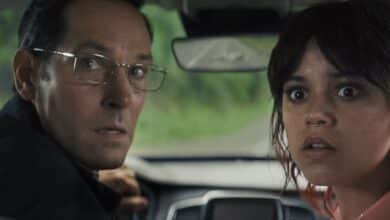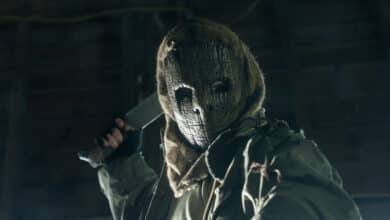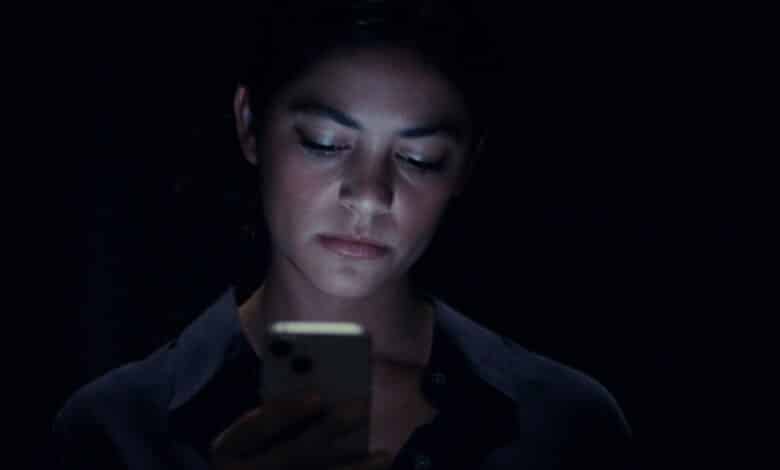
The Dead Thing is a haunting meditation on modern loneliness and the ghostly residues of our digital lives. In this genre-bending tale, director Elric Kane and co-writer Webb Wilcoxen present a story that is as much about ghosting in the age of dating apps as it is about literal ghosts. The film follows Alex (Blu Hunt), a disenchanted office drone navigating the bleak landscape of modern romance on the dating app Friktion. When she matches with the seemingly perfect Kyle (Ben Smith-Petersen), an attractive barista whose charm initially promises connection, everything appears to be falling into place… until Kyle suddenly vanishes, only to reemerge under disturbingly altered circumstances.
The narrative sets a deliberate, slow and uneasy tone in its early stages, inviting viewers to share in Alex’s quiet desperation and the monotony of her daily life. Kane’s approach allows the audience to become fully immersed in Alex’s inner world, a world where her routine interactions and fleeting romances serve as a stark counterpoint to the haunting emptiness of Los Angeles. As the film progresses, however, the tone shifts abruptly into a series of Lynchian dislocations. Kyle, now revealed to be an amnesiac revenant trapped between life and death, begins to dominate Alex’s existence, and the film’s pacing accelerates into a frenetic, almost surreal frenzy that blurs the lines between digital fantasy and corporeal horror.
There’s a playful, almost mischievous quality to The Dead Thing that feels like it was ripped straight from the mind of R.L. Stine—a whimsical “What if a ghost ghosted someone!” idea that might have been dismissed as a B-movie gimmick in another context. Yet, instead of relegating this absurd notion to mere camp, director Elric Kane takes it seriously, imbuing it with a surprising depth. The film transforms what could have been a lightweight horror twist into a poignant metaphor for the lingering specters of our past relationships and the emotional isolation of modern digital life. In doing so, The Dead Thing not only entertains with its clever, offbeat premise but also succeeds in offering meaningful commentary on the transient, often ghostly nature of connection in today’s world.
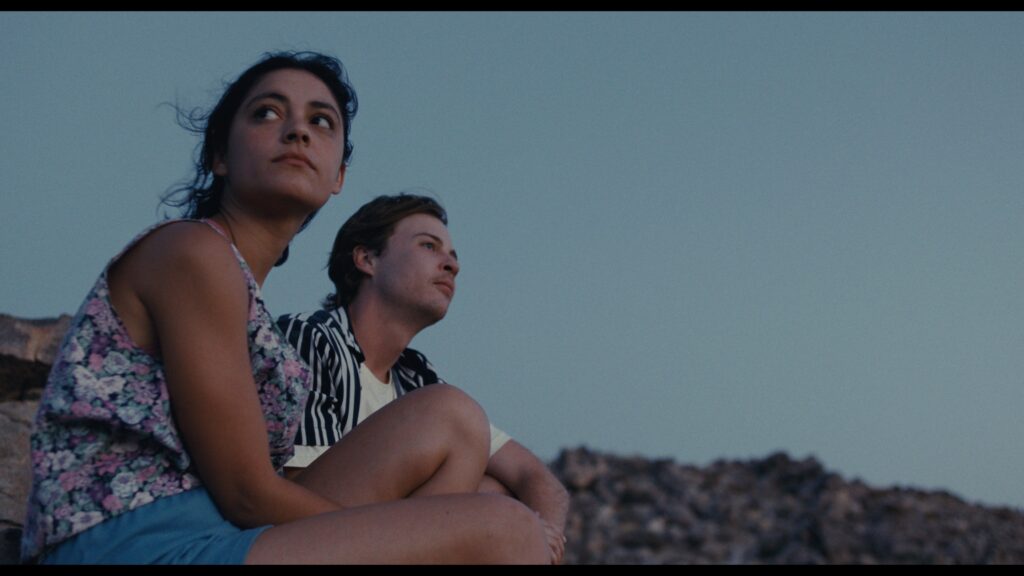
One of the film’s most striking features is its willingness to confront the modern epidemic of digital dating head-on. The narrative cleverly subverts our expectations by transforming the common act of ghosting, a modern dating faux pas, into a literal, supernatural event. Kyle’s inexplicable reappearance, tied inexorably to the persistence of the dating app, serves as a metaphor for the way toxic relationships and unresolved emotional baggage can haunt us. The idea that a man could remain in limbo, his presence sustained solely by a digital platform, is as unsettling as it is thought-provoking, suggesting that our reliance on technology can inadvertently trap us in cycles of emotional isolation and despair.
Blu Hunt delivers an outstanding performance as Alex, imbuing the character with a depth that transcends the typical portrayal of a heartbroken dater. Hunt’s portrayal is refreshingly devoid of the male gaze, instead conveying Alex’s vulnerability, resilience, and simmering inner turmoil through subtle expressions and measured silences. Her journey, from an apathetic swipe-driven existence to a desperate search for genuine connection, is rendered with a raw emotional authenticity that elevates the film beyond its low-budget trappings.
Visually, The Dead Thing excels at capturing the eerie loneliness of a modern metropolis. Cinematographer Ioana Vasile crafts a series of haunting, dimly lit frames that evoke the oppressive atmosphere of a city stripped of human warmth. Whether it’s the quiet desolation of empty streets or the claustrophobic interior of a night-shift workplace, the film’s aesthetic reinforces its central themes of isolation and digital disconnection. The soundtrack, punctuated by Hrishikesh Hirway’s evocative score and carefully chosen modern tracks, further enhances the film’s moody ambiance and underscores the emotional weight of Alex’s journey.
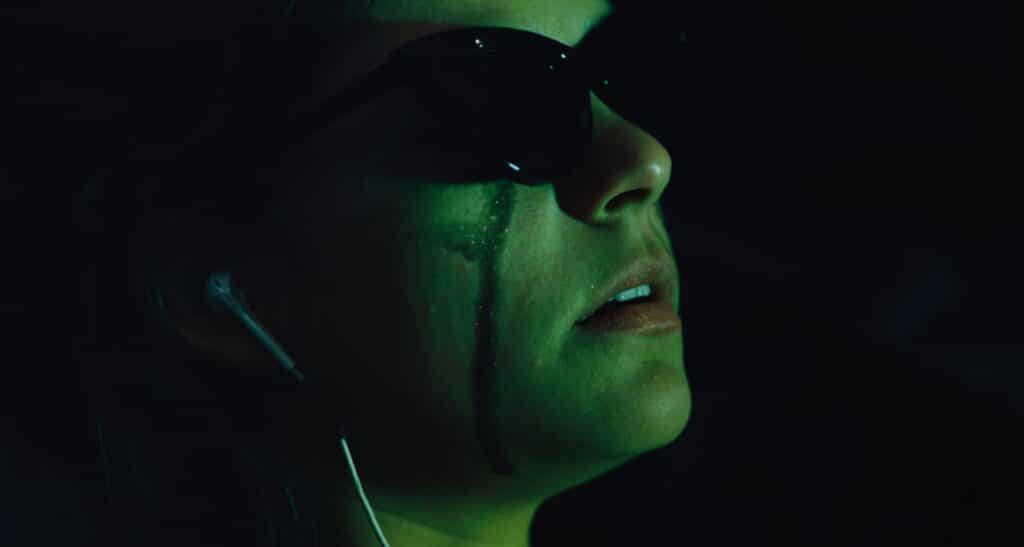
Despite its many strengths, the film does stumble in its final act. As the narrative shifts toward a more explicit exploration of Kyle’s revenant nature and the mounting danger he represents, the story’s intellectual grip slackens. The revelation that Kyle’s digital existence is a tool of emotional manipulation is delivered with a heavy-handedness that momentarily undercuts the film’s earlier subtlety. Yet even these shortcomings feel integral to the film’s overall design, an imperfect but deliberate attempt to mirror the unpredictable nature of love and technology in the 21st century.
In the end, The Dead Thing stands as a bold, inventive entry into the tech-horror genre, blending ghost story elements with a contemporary dating drama in a way that is both unsettling and darkly humorous. With its nuanced performances, atmospheric visuals, and thought-provoking themes, the film offers a fresh take on the eternal human struggle for connection in an increasingly digital world, even if it occasionally loses its footing in its quest to balance style with substance.
4/5 Stars


